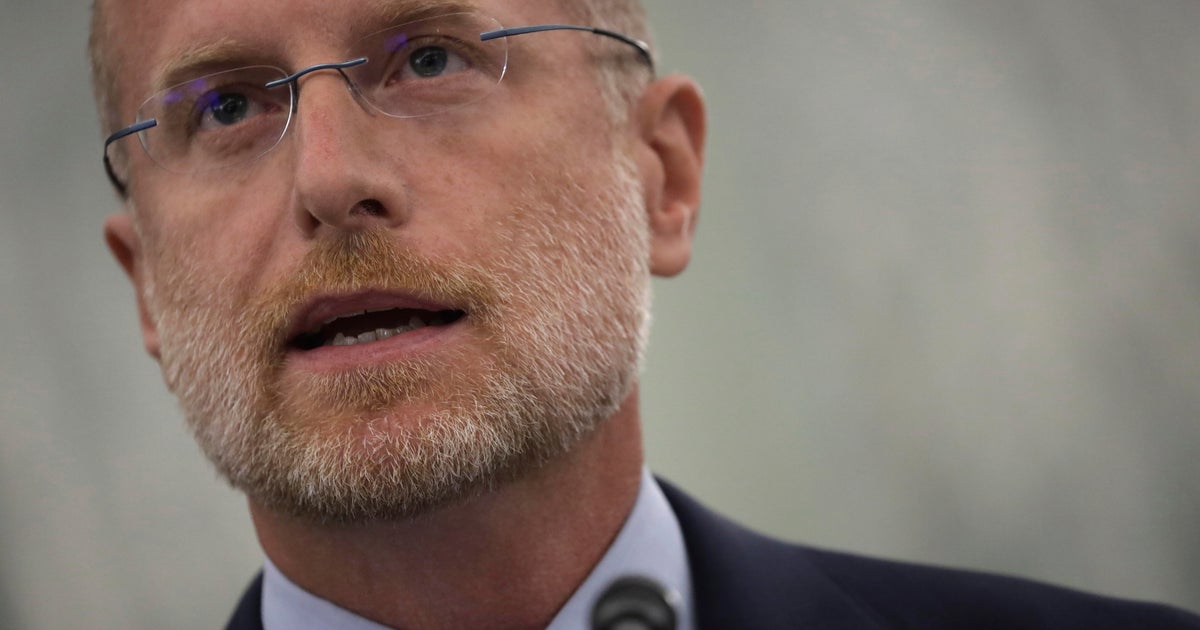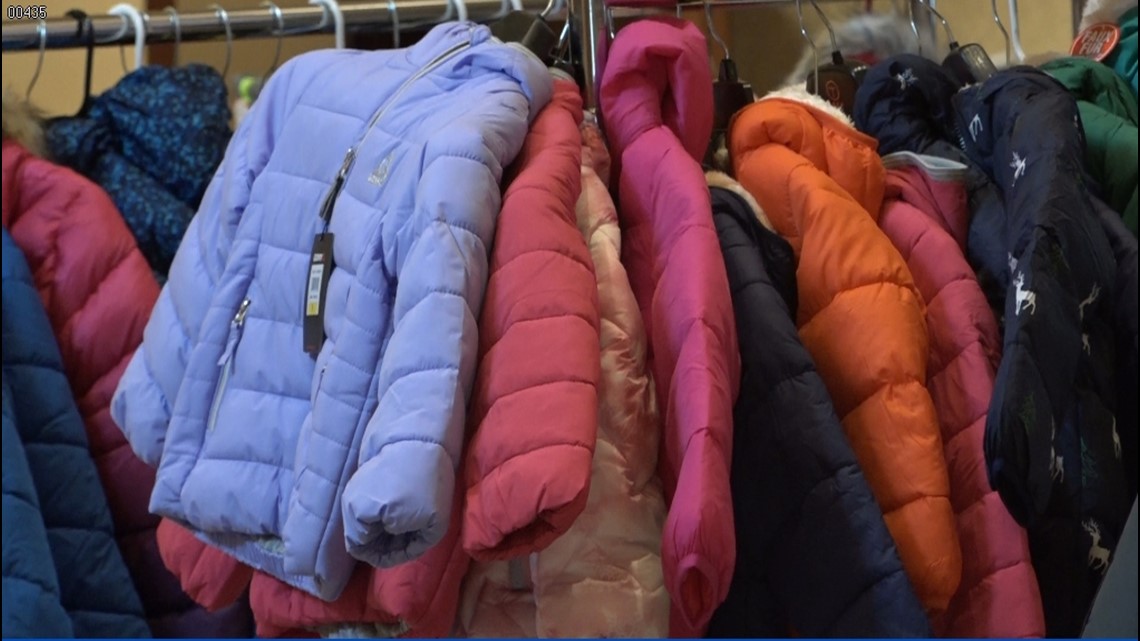CBS News
Senate immigration deal faces House opposition

Watch CBS News
Be the first to know
Get browser notifications for breaking news, live events, and exclusive reporting.
CBS News
As Biden nears Trump’s number of judicial confirmations, Republicans look to slow the process

Washington — As Senate Democrats work to push through President Biden’s remaining nominees to the nation’s courts before he leaves office and control of the upper chamber flips, they are bumping up against efforts by their Republican colleagues to slow down the pace of confirmations, amid President-elect Donald Trump’s urging that his party “hold the line.”
Mr. Biden and Trump have made judicial nominations a priority in their respective terms in office, as courts become the arbiters of politically charged disputes over issues that affect all corners of American life.
During his first term in office, the Senate confirmed 234 of Trump’s judicial nominees to the Article III courts, which include the Supreme Court, federal appeals courts, district courts and U.S. Court of International Trade. But Mr. Biden is fast approaching that number for his four years in office, with the Senate approving 217 of his candidates for the federal bench so far. There are 44 current vacancies, and 14 nominees awaiting action by the upper chamber, according to the Judicial Conference.
Democrats are hoping to meet or surpass Trump’s 234 judicial confirmations during the lame-duck session, but have encountered resistance from Republicans — who, egged on by Trump — looking to hold up and drag out the process.
When the Senate convened for votes Monday, Republicans used procedural maneuvers to drag out the floor proceedings, slowing Democrats’ efforts to confirm Mr. Biden’s judicial picks. The plan to slow down the confirmations was orchestrated by Sen. John Thune of South Dakota, who was elected last week to serve as the next GOP leader, according to Fox News.
“If Sen. Schumer thought Senate Republicans would just roll over and allow him to quickly confirm multiple Biden-appointed judges to lifetime jobs in the final weeks of the Democrat majority, he thought wrong,” Thune said in a statement.
Trump is also pushing Senate Republicans to thwart Democrats’ efforts to continue approving Mr. Biden’s judicial picks.
“The Democrats are trying to stack the courts with radical left judges on their way out the door,” he wrote on social media. “Republican senators need to show up and hold the line — no more judges confirmed before inauguration day!”
But Democrats are not breaking new ground by confirming Mr. Biden’s judicial nominees during the lame-duck session. In 2020, after Trump lost his bid for reelection, the GOP-led Senate confirmed 19 candidates to the federal bench, including one judge to the U.S. Court of Appeals for the 7th Circuit and four to the U.S. Court of Federal Claims.
Among those who won approval in the weeks after the 2020 election was U.S. District Judge Kathryn Mizelle, who at 33 years old was the youngest of Trump’s nominees and was deemed “not qualified” to serve on the district court by the American Bar Association. U.S. District Judge Aileen Cannon, who tossed out the criminal case against Trump for his alleged mishandling of sensitive documents, was also confirmed by the Senate after the 2020 election.
“Delaying the confirmation of highly qualified, experienced judges takes a real-life toll on constituents and leads to backlogs of criminal cases – meaning Senator Thune was correct in 2020 when he said senators have every urgent reason to continue working together in good faith to staff the federal bench,” Andrew Bates, White House spokesperson, said of the efforts to gum-up the confirmation process. “There is no excuse for choosing partisanship over enforcing the rule of law.”
Advocacy groups are pressuring Senate Democrats to continue to hold votes to approve all of the president’s remaining nominees to the federal bench before Trump takes office in late January and Republicans claim the majority in the Senate.
On Friday, the Leadership Conference on Civil Rights and 141 groups sent a letter to senators urging them to confirm all pending judicial nominees, calling it “urgent and enduring.”
“We implore you to stay in and do this necessary work,” the organizations said. “It is essential that we leave no judges behind.”
Demand Justice, a progressive judicial advocacy group, also launched a campaign aimed at pressuring senators to green-light Mr. Biden’s picks for the federal courts.
“With only weeks left before the new Congress, it’s more urgent than ever that Democratic senators do whatever it takes — staying late, working weekends — during the lame duck session to confirm the dozens of remaining fair-minded, qualified judges nominated by President Biden that the American people deserve,” said Maggie Jo Buchanan, managing director of Demand Justice.
Senate Democrats are unbowed by Republicans’ efforts and have indicated they will charge ahead with confirming Mr. Biden’s judicial picks.
Senate Majority Leader Chuck Schumer stressed Tuesday that Democrats “are not done yet,” and said his party will do what it can to “get as many judges confirmed as we can.”
“Everyone should be prepared for another late night on Wednesday to vote on nominations and get as many judges done as possible,” the New York Democrat said, adding that Republicans “can try dilatory tactics but we’re going to persist, as we showed last night, as we’re persisting now.”
Sen. Dick Durbin, the Democratic whip who also chairs the Judiciary Committee, celebrated the judges brought forward by the committee over the last four years of Democratic control, noting that the vast majority of the judges that the Senate has considered are bipartisan, winning support from Republicans.
But some Republicans didn’t see them that way, such as Sen. John Kennedy of Louisiana, who argued that many of Mr. Biden’s nominees “are not qualified to be on the federal bench” and called them “activists.”
Still, Senate Republicans acknowledge that they can’t block the judicial picks across the board as Trump has requested. Sen. Pete Ricketts, a Nebraska Republican, said that although Republicans would like to deliver on Trump’s wishes, “Democrats are in the majority, and even if we have all of our members here, we still can’t prevent that, as long as they have all their members.”
“So, we’ll certainly try,” Ricketts said.
CBS News
As “walking pneumonia” spreads, ER visits surge for sick babies

Nationwide rates of emergency room visits for babies with Mycoplasma pneumoniae are on track to surpass rates for school-age children, data from the U.S. Centers for Disease Control and Prevention shows, as doctors nationwide are grappling with a surge of “walking pneumonia” cases.
The new figures come from the CDC’s National Syndromic Surveillance Program, which gathers data on pneumonia-associated emergency room visits from U.S. hospitals.
While cases had been higher in school-age kids compared to other age groups, rates in babies have surged in recent weeks, and are now tied with older kids. According to the latest CDC data, for the week ending Nov. 2, 7.6% of emergency department pneumonia cases for babies 0-1 years old and children ages 5-17 years old resulted in Mycoplasma pneumoniae diagnoses.
“These diagnoses dropped a little after August, but remained high through early November. Of note, diagnoses among 0–1-year-olds have steadily increased throughout the fall without any subsequent decrease,” CDC spokesperson Jasmine Reed said in a statement Tuesday.
During the COVID-19 pandemic, cases largely disappeared. CDC officials had said that this year’s wave could be heralding a return to waves of Mycoplasma pneumoniae cases that occurred prior to the pandemic.
But this year’s trend has also been unusual, since cases had previously been thought to be common only in school-aged kids, not younger children.
“While we are seeing right now that it is presenting as a typical respiratory infection, we want to make sure that there isn’t something unusual going on with the bacteria itself or the way it’s showing up that might give guidance in how to treat and prevent it,” Dr. Adam Cohen, head of the CDC’s pneumonia branch, told Medscape News earlier this month.
According to Reed, while every U.S. region is seeing an increase in Mycoplasma pneumoniae cases, the CDC’s data suggests that since at least last month — when several states first began to raise concerns over the surge — the ERs of three regions specifically are seeing the highest levels of the bacteria.
One is in the South and spans Texas and its neighbors Arkansas, Louisiana, Oklahoma and New Mexico. The second is in the Midwest and includes Iowa, Kansas, Missouri and Nebraska. The third is in the Northeast and includes New York and New Jersey.
“Maybe it’s another one of those things that we didn’t see, got really suppressed during COVID, and now it’s coming back,” said Dr. Jennifer Nayak, division chief of pediatric infectious disease at Golisano Children’s Hospital in New York. “It just is definitely a really bad year for Mycoplasma.”
Nayak said that around a quarter of tests from the hospital’s microbiology lab have come in positive for the bacteria, which she says is unusually high.
The hospital has also seen an increase in patients needing to be hospitalized for the bacteria and who are battling a range of conditions — from lung issues to more complicated neurological complications — though they remain a fraction of overall cases.
“We’ve definitely seen more kids on the seriously ill side of the spectrum,” Nayak said. “Likely not because the bacteria has changed, but because our rates overall are just higher.”
She cautioned that while the recent increase has been unusual, there has not been a lot of data tracking the disease, so comparisons to previous waves of the bacteria have been challenging.
“Our tracking of Mycoplasma infections is suboptimal,” Nayak said. “This is not something that is reportable to health departments. It has not, until relatively recently, been closely tracked.”
A spokesperson for the New York State Department of Health said that it has also tracked a “marked increase” in Mycoplasma pneumoniae based on data from the state’s emergency rooms, compared to previous years.
While not all pneumonia cases warrant antibiotics, Nayak said testing can be important to give answers for children and their families battling persistent or serious pneumonia cases, as well as to help make decisions about how to treat the infections.
“The amoxicillin your child is getting because they might have an ear infection, or you think you’re treating another community-acquired pneumonia, those antibiotics will not be effective against Mycoplasma,” Nayak said.
CBS News
Trump’s FCC pick, Brendan Carr, wrote Project 2025’s chapter on the agency. Here’s what he wants.

President-elect Donald Trump’s pick to run the Federal Communications Commission, Brendan Carr, will oversee the agency that regulates U.S. internet access and communications networks such as TV and radio. Carr believes it’s an institution ripe for change, according to the nominee’s Project 2025 chapter on the agency FCC.
Carr will be stepping into the role of FCC Chair after serving as one of its five commissioners since 2017, when Trump nominated him to the role during his first administration. Prior to that, Carr served as the agency’s general counsel.
The FCC may not be a household name to most Americans, but the agency enforces communications laws, runs programs to help communities gain access to high-speed internet and regulates communications services, including satellite internet access, among other tasks. But under Carr, the agency may pivot to some new priorities during Trump’s next term, with a renewed focus on battling big technology companies and Chinese-based telecom firms.
“The FCC needs to change course and bring new urgency to achieving four main goals,” including “reining in Big Tech,” Carr wrote in his chapter on the FCC in Project 2025.
Here’s what to know about Carr’s priorities.
How might the FCC deal with tech giants?
In Project 2025, Carr highlighted what he believes is a need for a new approach to dealing with tech giants such as Google, Meta and others.
“Today, a handful of corporations can shape everything from the information we consume to the places we shop,” Carr wrote in the document. “These corporate behemoths are not merely exercising market power, they are abusing dominant positions.”
The FCC should restrict immunity from Section 230, part of a law that says tech companies aren’t liable if a user posts something libelous, as well as tamp down the businesses’ ability to “censor protected speech while maintaining their Section 230 protections,” he wrote.
Carr also wants tech companies to be more transparent about their algorithm changes and their decisions to block or demonetize users.
What are Carr’s views on Elon Musk?
Carr has built an alliance with billionaire Musk, the world’s wealthiest person who backed Trump’s campaign and whose Starlink satellite internet service could benefit from access to federal cash.
In a Tuesday interview with Fox News, Carr pointed to Musk as an example of how the federal government doesn’t treat people fairly, noting that a grant of almost $900 million to Musk’s Starlink was “revoked unlawfully.” Last year, the FCC said it rejected the grant because of lack of proof that Starlink would be able to provide service to hundreds of thousands of rural properties.
“It is time for the American government to not give people different treatment based on their last name,” Carr told Fox News. “Everybody will get a fair shake from the government going forward.”
What about his views on TikTok and Chinese businesses?
In his Project 2025 chapter, Carr singled out TikTok and other Chinese-owned businesses as potential threats to U.S. security.
“As law enforcement officials have made clear, TikTok poses a serious and unacceptable risk to America’s national security,” Carr wrote. “It also provides Beijing with an opportunity to run a foreign influence campaign by determining the news and information that the app feeds to millions of Americans.”
That would align his views along those with the Biden administration, with the president signing a law in April that would require TikTok to be sold or else banned from the U.S.
Carr also wrote that he believes the FCC needs to do more to monitor and restrict Chinese telecom and tech businesses from operating within the U.S.
What does Carr say about broadcasters?
Carr has taken aim at some broadcasters, including CBS News, echoing Trump’s claims that they engage in political bias. For instance, Carr singled out NBC for including Trump’s Democratic rival, Kamala Harris, in a “Saturday Night Live” skit before the election.
“This is a clear and blatant effort to evade the FCC’s Equal Time rule,” Carr wrote on X on November 2. “The purpose of the rule is to avoid exactly this type of biased and partisan conduct — a licensed broadcaster using the public airwaves to exert its influence for one candidate on the eve of an election.”
After Trump announced Carr’s pick, Carr said on X that he will ensure the FCC “will enforce” laws that call on broadcasters “to operate in the public interest.”
Trump has repeatedly called to strip major broadcasters such as ABC, NBC and CBS of their licenses. During the 2024 campaign, Trump sued CBS News over a “60 Minutes” interview with Harris, alleging the network used “deceitful” editing of her responses. CBS News has called the president-elect’s claims “completely without merit” and added it intended to vigorously defend against the lawsuit.
What do supporters and critics say about Carr?
Trump praised Carr as “a warrior for Free Speech” in a statement announcing his selection. Fellow FCC Commissioner Geoffrey Starks, a Democrat, described Carr as “a dedicated public servant and a recognized leader on the many issues before the Commission today.”
But some critics have flagged some of Carr’s stances, with the nonpartisan public interest group Free Press describing his relationship with Musk as well as his stance on broadcasters as problematic.
“While styling himself as a free-speech champion, Carr refused to stand up when Trump threatened to take away the broadcast licenses of TV stations for daring to fact check him during the campaign,” Free Press Action Co-CEO Craig Aaron said in a statement. “This alone should be disqualifying.”
Free Press and Fight for the Future, an advocacy group focused on digital rights, both have cited concerns about net neutrality, a policy that ensures internet service providers treat all websites and online content equally. Net neutrality was overturned during the first Trump administration, but was restored during Biden’s term.
“Trump’s nomination of Brendan Carr, one of the co-authors of Project 2025, to head the FCC is more than just a reversal of popular policies like net neutrality,” said Evan Greer, director of Fight for the Future, said in an email. “Carr has made clear he actually wants the FCC to get more involved in policing online speech.”







